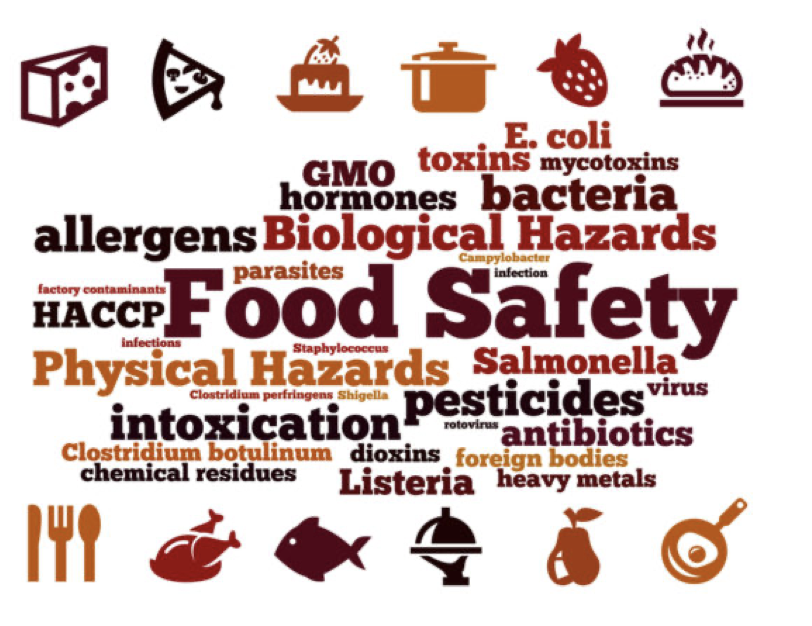Research
My research interests are at the nexus of agricultural, food, and international economics. The broad question guiding my research agenda is the resilience of supply chain actors within different institutional setups to frequently changing food safety regulations and agricultural market shocks. My research objective is to understand how these themes interact to produce a sustainable global food system. I achieve this goal using ideas, large administrative macro- and micro-level data and cutting-edge empirical methods. Here, I summarize my research under three broad themes. You can find my complete research statement here.
Food safety standards, trade policy and global agricultural value chains:
In this line of research, I analyze how economic agents react to trade-related policy changes in the agricultural and food sector.
 My main focus here is how food safety regulations influence the import and export performance of producers and agribusiness firms. Why is this important? Trade is a balancing mechanism for local and global food demand and supply. In developed countries, competition has moved from price to quality as consumers have developed a preference for food produced and sourced sustainably. But there is also a development angle. The agrifood sector is particularly subject to standards but forms a major share of exports and fiscal revenue in developing countries. Yet, the stringency of these food standards is determined in developed countries. Thus, food safety requirements (e.g., certification and traceability) can hurt poor farm households whose fates are essentially tied to serving high-value supply chains. Yet, a call for weaker standards ignores their potential consumer or societal benefits, e.g., addressing information asymmetries and mitigating consumption risks. That said, policymakers can also use standards to disguise protectionist intents, e.g., shielding domestic producers from international competition. Lastly, food safety regulations were initially the domain of public regulators, but the proliferation of voluntary standards by private players adds another layer of complexity. The complex nature of regulating food safety raises many questions that my research engages with. This research area formed the core of my doctoral dissertation which was awarded the RTG GlobalFood best dissertation at the University of Göttingen.
My main focus here is how food safety regulations influence the import and export performance of producers and agribusiness firms. Why is this important? Trade is a balancing mechanism for local and global food demand and supply. In developed countries, competition has moved from price to quality as consumers have developed a preference for food produced and sourced sustainably. But there is also a development angle. The agrifood sector is particularly subject to standards but forms a major share of exports and fiscal revenue in developing countries. Yet, the stringency of these food standards is determined in developed countries. Thus, food safety requirements (e.g., certification and traceability) can hurt poor farm households whose fates are essentially tied to serving high-value supply chains. Yet, a call for weaker standards ignores their potential consumer or societal benefits, e.g., addressing information asymmetries and mitigating consumption risks. That said, policymakers can also use standards to disguise protectionist intents, e.g., shielding domestic producers from international competition. Lastly, food safety regulations were initially the domain of public regulators, but the proliferation of voluntary standards by private players adds another layer of complexity. The complex nature of regulating food safety raises many questions that my research engages with. This research area formed the core of my doctoral dissertation which was awarded the RTG GlobalFood best dissertation at the University of Göttingen.
I also study other more traditional trade policy measures such as tariffs. I have looked at how trade costs affect product quality upgrading at the firm and/or country level. I am also keen on environmental and food policy implications of trade policy. Global trade policy could be a powerful lever for change since around a quarter of global CO2 is emitted in trade-related supply chains. I explore ways to use trade policy to “save the climate” without undermining the gains from trade.
The resilience of agrifood supply chains to shocks and uncertainty
The resilience of the global food system depends on the resilience of supply chain actors to shocks and uncertainty. In this line of research, I am interested in how these actors respond to global and local shocks. This is important to maintain food security for the most vulnerable in times of crisis.
Institutions and agricultural economic outcomes
Institutions remain the rule of the game in a society. Whether within or across countries, the role of institutions in determining aggregate outcomes cannot be understated. In this line of research, I assess how governance and institutions affect agricultural, economic and environmental outcomes.